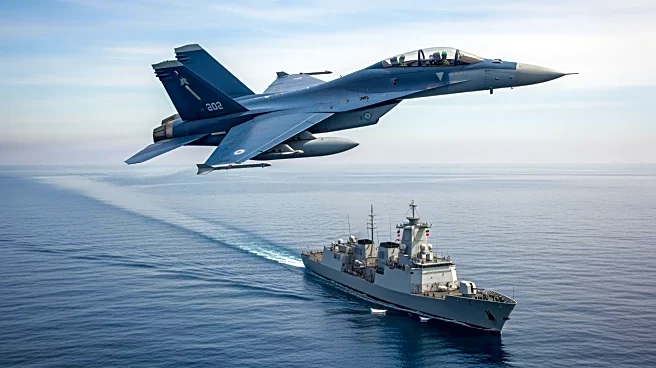What's Happening?
The Quad nations—India, the US, Japan, and Australia—are conducting their first-ever joint air drill, Cope India 2025, alongside the annual Malabar Naval Exercise. These exercises are hosted by the US in Guam,
a strategic military outpost in the western Pacific. The simultaneous air and naval drills underscore the Quad countries' commitment to their alliance, despite rising trade tensions with the US. The Malabar Exercise, part of the Indo-Pacific's second island chain, is likely to provoke a response from China, which views the Quad as an anti-China grouping. The exercises highlight the strategic importance of the Indo-Pacific region and the Quad's focus on enhancing military interoperability.
Why It's Important?
The joint exercises by the Quad nations are significant as they demonstrate a unified front in the Indo-Pacific region, which is crucial for maintaining balance against China's growing influence. The drills enhance military cooperation and interoperability among the Quad members, potentially deterring aggressive actions in the region. The exercises also reflect the Quad's strategic focus on ensuring a free and open Indo-Pacific, which is vital for global trade and security. The involvement of advanced military assets, such as India's Rafale jets, further emphasizes the commitment to regional stability and defense collaboration.
What's Next?
The exercises are expected to draw reactions from China, which has consistently criticized the Quad as a security threat. The outcome of these drills could influence future military strategies and alliances in the region. Additionally, the success of these exercises may lead to more frequent and complex joint operations among the Quad nations, further solidifying their strategic partnership. Observers will be keen to see how China responds diplomatically and militarily to these developments.










